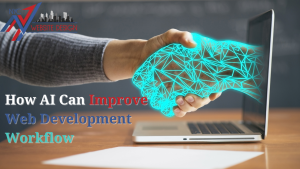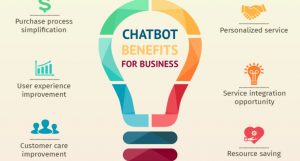The Impact of AI on Jobs: Deep Dive into Artificial Intelligence
Artificial intelligence is a rapidly developing technology, and it’s already having a significant impact on the workforce. In this Artical, we’ll explore how AI is changing jobs, what jobs are most at risk, and what new jobs are being created.
What is AI?
Before we get into the impact of AI on jobs, let’s take a quick look at what AI actually is. Artificial intelligence is a branch of computer science that deals with the creation of intelligent agents, which are systems that can reason, learn, and act autonomously. AI has been around for decades, but it’s only in recent years that it’s really started to take off. This is due to a number of factors, including the increasing availability of data, the development of powerful computing hardware, and the rise of machine learning.
How is AI changing jobs?
AI is changing jobs in a number of ways. First, it’s automating many tasks that were once done by humans. For example, AI-powered chatbots are now being used to answer customer service questions, and AI-powered algorithms are being used to screen resumes. Second, AI is enabling new ways of working. For example, AI-powered tools can help workers to collaborate more effectively, and AI-powered analytics can help businesses to make better decisions. Third, AI is creating new jobs. For example, there is a growing demand for data scientists and AI engineers.
What jobs are most at risk?
Some jobs are more at risk from AI than others. Jobs that are repetitive, rule-based, and require little creativity are the most likely to be automated. This includes jobs in manufacturing, customer service, and transportation. However, it’s important to note that not all jobs in these industries are at risk. For example, jobs that require social interaction or problem-solving are less likely to be automated.
What new jobs are being created?
As AI continues to develop, it will create new jobs. These jobs will be in areas such as data science, AI engineering, and machine learning. There will also be new jobs in industries that are being disrupted by AI, such as manufacturing and transportation.
Conclusion:
The impact of AI on jobs is still unfolding. However, it’s clear that AI is already having a significant impact on the workforce. Some jobs are being automated, while new jobs are being created. It’s important to be prepared for these changes, and to develop the skills that will be in demand in the future.
Additional information:
In addition to the information that I’ve already covered, here are some other things to keep in mind about the impact of AI on jobs:
The pace of change is accelerating. AI is developing at an exponential rate, so it’s important to be prepared for the changes that are coming.
The impact of AI will vary across industries. Some industries will be more affected than others. For example, manufacturing and transportation are likely to be more affected than healthcare and education.
The impact of AI will be uneven. Some people will benefit from AI, while others will be displaced. It’s important to have policies in place to help those who are displaced by AI.
I hope this information is helpful. If you have any other questions, please feel free to ask.



